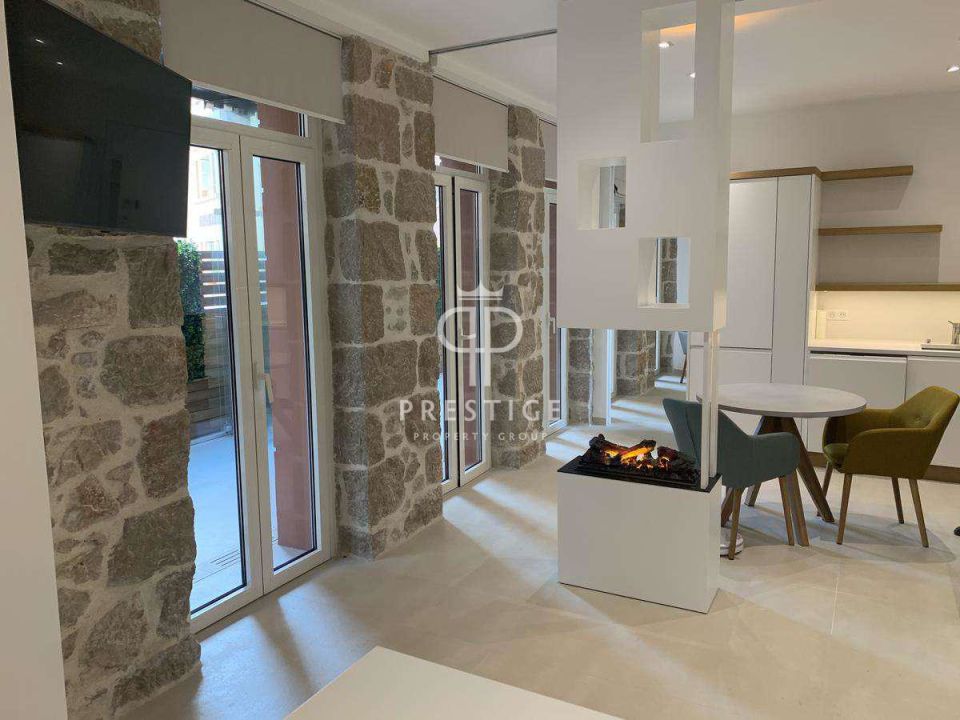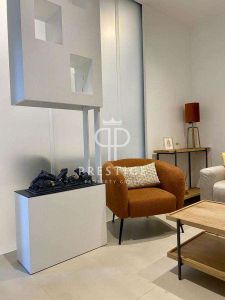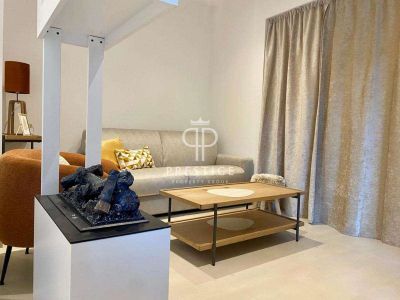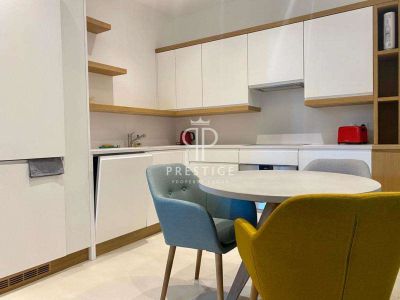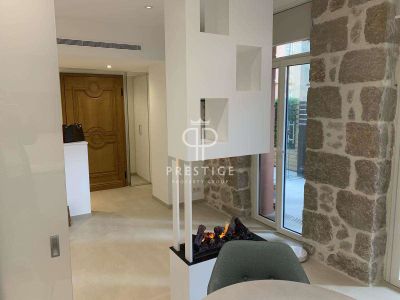1 bedroom Apartment for sale in Monte Carlo, Monte Carlo and Beaches
With its own entrance, wonderfully renovated and fully furnished in a contemporary style, whilst managing to retain its bourgeois charm, features include: entrance hall, living room, dining room with a equipped and furnished kitchen, bedroom, 2 shower rooms and a large terrace....
With its own entrance, wonderfully renovated and fully furnished in a contemporary style, whilst managing to retain its bourgeois charm, features include: entrance hall, living room, dining room with a equipped and furnished kitchen, bedroom, 2 shower rooms and a large terrace.
Features
Location
Where is this property?
This Apartment is located in Monte Carlo in Monaco
For security, the map shows the nearest town or village. Please get in touch for full details.
Search Location
Find Properties near Monte Carlo
Airports near Monte Carlo
More Luxury Properties
Similar Properties
Nearest Properties
Featured Properties
Buying a Property in Monaco
The Agent
The estate agent will connect the buyer, the seller and a property, and will take a commission to do so.
The Notaire
The notaire (solicitor) is the Monegasque council which drafts the deed of sale and which brings together the buyer, the seller and possibly the lender for the act of signing the deed.
The notaire generally acts both for the buyer and for the seller. He is responsible for making necessary searches and enquiries such as verifying that the seller has the rights and title deeds, that there are no outstanding mortgages, no planning irregularities etc.
The intervention of the notaire certifies that the deed of sale is a document that is both conclusive and enforceable.
1. Written offer
The buyer usually has to sign an offer to buy. This is drawn up by the estate agent and if accepted, binds the parties. Often, a cheque drawn on a Monaco bank, and representing the security deposit will be attached to the offer, in order to prove the commitment of the buyer. Otherwise, the offer will specify that a bank transfer will be made to the notary's escrow account, within a short period after the offer is accepted.
Subsequently, the purchase takes place in two stages: the signing of a promise of sale drawn up by the notaire followed by the signing of the deed of sale before the notaire. The buyer must undertake to pay a security deposit equal to 10% of the sale price at the signing stage of the promise to sell, amount retained by the notaire and which will be deducted from the sale price at the signing of the deed of sale.
2. Costs and expenses
Generally, on the purchase of goods over 5 years, the costs and expenses will be equivalent to 6% of the purchase price and will have to be paid by the buyer. This 6% includes a registration fee (4.5%) and notary fees (1.5%). This rate is applicable when the purchase is made by individuals or by a Monegasque ICS. The registration fees will be higher (7.5%) when the acquisition is made through a foreign company, to which must be added notary fees of 1.5% thus making a total of 9 %.
In some cases (eg when the property is new or under construction) the registration fee will not apply and the sale price will be subject to value added tax (VAT) at the rate of 20%. The notary fees and a right of transcription will be applicable for a total amount of 2.5%, payable by the buyer, regardless of whether the buyer is an individual or a company.
3. Purchase of a foreign company
If the property is held by a foreign company, the buyer may possibly purchase this structure and in this case the registration fee will be 4.5% on top of the value of the property following the change of the owner of the foreign company.
4. Tax consequences
Monaco does not levy income tax, capital gains tax or wealth tax on individuals. French nationals residing in Monaco nevertheless pay income tax and wealth tax in France in certain circumstances.
The rights of gifting and inheritance rights exist in Monaco, but only on property located in Monaco. The rate of these fees is 0% on provisions in favour of parents, a surviving spouse, children or more distant relatives.
On other provisions, donation and inheritance taxes are payable at rates depending on the degree of relationship between the donor and the recipient. The maximum rate of 16% is applied in the case of provisions to non-parents.
The fee is payable by the recipient.
